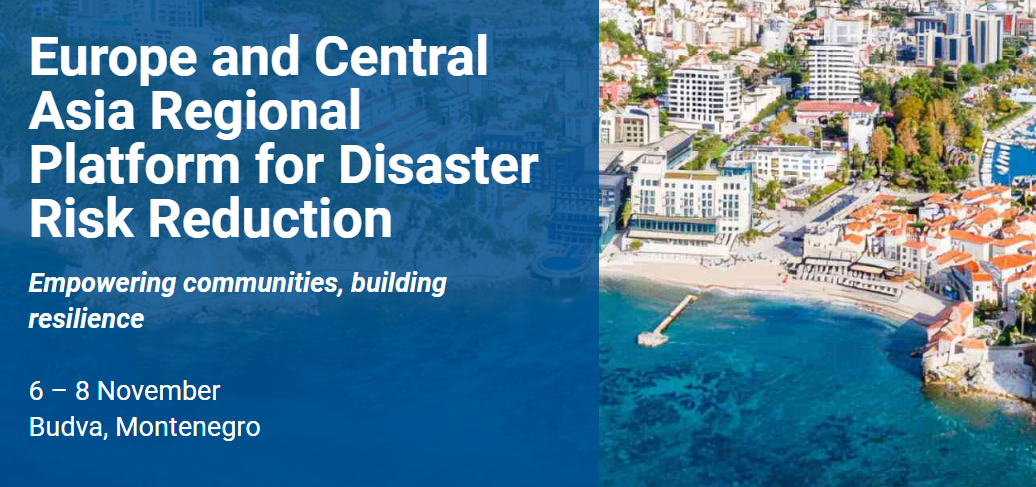
Transformative Changes for Effective Risk Governance
The webinar, organized in the framework of the Europe and Central Asia Regional Platform for Disaster Risk Reduction event, featured a joint keynote presentation by Veronica Casartelli (CMCC) and Cristina Brailescu (DG ECHO) on transformative changes in risk governance, followed by pitch presentations from invited speakers, including Cristina Marugan (Spain’s Government), Karmen Poljansek (European Commission, JRC/DRMKC), Patricia Pella (UNDRR), and Jaroslav Mysiak (CMCC).
Topics covered during the webinar included insights from the 2023 Spanish presidency workshop on risk governance, the role of the Disaster Risk Management Knowledge Centre (DRMKC) in supporting disaster risk management, examples of civil society engagement in Moldova, and key challenges in adapting risk governance frameworks to future climate, environmental, and socio-economic changes. The session concluded with a panel discussion and Q&A, focusing on fostering local capacities, mobilizing research organizations, enhancing inclusivity in governance, and promoting coherence between disaster risk reduction and climate change adaptation.
The Naturance project was mentioned during CMCC intervention, especially in the panel discussion, highlighting the need to adapt risk governance to the evolving and complex nature of climate-related risks and their propagation pathways. Mysiak focused on three essential shifts in approach: First, he emphasized a shift from impact-based to resilience-focused assessments that address the cascading and systemic nature of climate risks. Second, the shift from problem-focused to solutions-oriented governance emphasizes resilience to complex, ongoing crises—poly- and permacrises—exacerbated by climate risks. Social justice and access to financial protection are vital components of this shift, ensuring that solutions like nature-based solutions (NbS) and ecosystem restoration address the needs of vulnerable communities most affected by climate impacts. Financial innovations, such as ecosystem service insurance, provide crucial safety nets, recognizing the value of healthy ecosystems and funding rapid restoration after events. This approach not only protects ecosystems that support local livelihoods but also incentivizes investment in nature-based resilience. By expanding access to financial protections, lower-income communities gain essential resources for recovery, promoting equity and resilience across diverse populations. Third, Mysiak highlighted the need to move from restrictive barriers to actively building capacity and capabilities. Open data spaces and transparent marketplaces enhance data reuse, enabling efficient resource allocation and customized insights for local contexts. By promoting standardized, accessible formats and open data sharing, governance frameworks facilitate a continuous flow of climate information across sectors, supporting tailored, effective responses.

